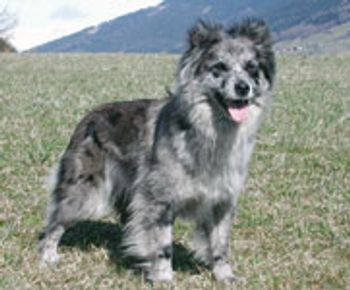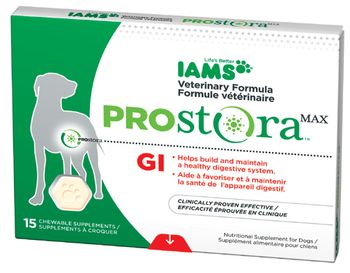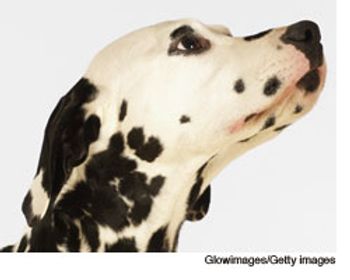
Three new breeds were added to the roster of American Kennel Club-registered dogs for 2009, and open breed registration for each will be available until 2012.

Three new breeds were added to the roster of American Kennel Club-registered dogs for 2009, and open breed registration for each will be available until 2012.

Rockville, Md. -- The list of recalled products containing peanut derivatives, compiled by the U.S. Food and Drug Administration, has grown over the last few days, with seven additional pet-food products being added.

Raleigh, N.C. -- The Labrador Retriever is again the nation's most popular purebred dog, but that has nothing to do with the recent movie, "Marley and Me."

Lynchburg, Va. -- PetSmart voluntarily pulled some pet treats off its shelves after a peanut-containing paste was linked to a recent Salmonella typhimurium outbreak.

Denver -- Colorado lawmakers are considering a bill that would force cat owners to microchip or tag their pets.

Rockville, Md. -- Veterinary Adverse Drug Experience (ADE) reports have been updated by the Food and Drug Administration's Center for Veterinary Medicine.

New York -- Three new dog breeds were added to the American Kennel Club registries recently, including the Irish Red and White Setter, Pyrenean Shepherd and Norwegian Buhund.

Novartis Animal Health (NAH) has announced a donation of $225,000 to the Oklahoma State University Foundation, becoming the first industry partner of the National Center for Veterinary Parasitology (NCVP)

Denver -- An online presentation on canine cancer, during which three leading veterinary oncologists answer questions submitted by dog owners, breeders and others, is available on the Morris Animal Foundation's (MAF) Web site.

The No. 1 read newsmagazine among small-animal doctors*

Westbrook, Maine - IDEXX Laboratories, Inc. launched a campaign to promote feline wellness, including interactive feline disease prevalence maps for FeLV, FIV and feline heartworm.

Denver -- A new Colorado law requires sterilization of all dogs or cats prior to adoption from shelters.

Fort Worth-based Virbac Animal Health (Virbac) has added a training segment to its website, which focuses on helping practices conform to medical regulations.

West Lafayette, Ind. -- An exo-skeleton-type brace, made by students at Purdue University's School of Veterinary Medicine, may be a new tool for dogs suffering from hip dysplasia.

Protect your job and help drag your practice out of these financial dumps.

Manhattan, Kan. - The $563 million National Bio and Agro-Defense Facility is moving to Kansas, and it could pump some $3.5 billion into the state.

Ad tie-ins

Fort Collins, Colo. -- CSU, NeoTrex and the Veterinary Diagnostic Institute (VDxI) inked a deal to develop a new diagnostic test to detect canine hemangiosarcoma.

Overland Park, Kan. -- A new medication containing the drug trilostane, which can help treat Cushing's syndrome in dogs, has been approved by the U.S. Food and Drug Administration.

Knoxville, Tenn.- A $5 million federal grant will help the University of Tennessee develop training programs for animal-related disasters.

New research demonstrates that probiotics may improve gastrointestinal health in dogs.

Lexington, Ky. - A retrospective study of 57 horses treated for proliferative enteropathy aims to help equine practitioners make a timely diagnosis.

Washington, D.C. - The Food and Drug Administration wants you to report adverse events from pet food.

Harrisburg, Pa. - A newly formed nine-member Canine Health Board has just 45 days to establish guidelines.

Harrisburg, Pa. -- The new nine-member Canine Health Board -- made up of veterinarians from the Pennsylvania Veterinary Medical Association and the University of Pennsylvania Veterinary Medical School, as well as Republican and Democratic legislative leaders -- has met for the second time in less than a month to work on guidelines for the recently passed Pennsylvania dog law.

Raleigh, N.C. -- A formal partnership was announced between PharmaCom BioVet Inc. and the United Kingdom's PetScreen, a company that specializes in early cancer detection in canines.

Franklin, Tenn. - Mars Petcare has extended its Oct. 28 voluntary pet food recall that affected 15 states, adding more product carriers and brands affected by possible Salmonella contamination.

The AVMA announced its opposition to cosmetic tail docking and ear cropping Nov. 26.

Denver -- The Morris Animal Foundation (MAF), in an effort to increase veterinary research into feline health issues, has launched the Happy Healthy Cat Campaign.

Davis, Calif. -- A team of researchers at the University of California, Davis, School of Veterinary Medicine say a gene mutation is responsible for high levels of uric acid, and sometimes bladder stones, in Dalmatians.